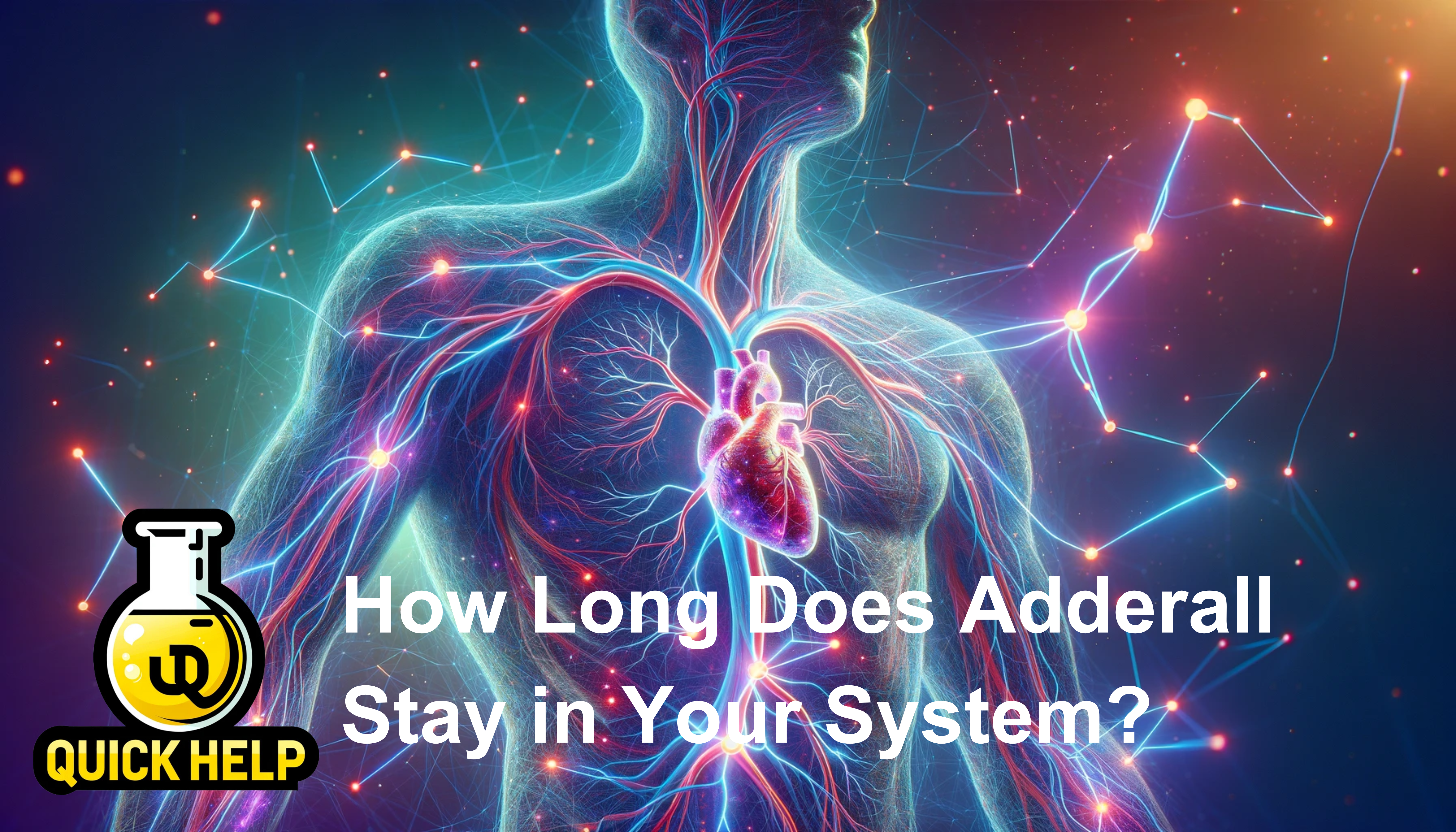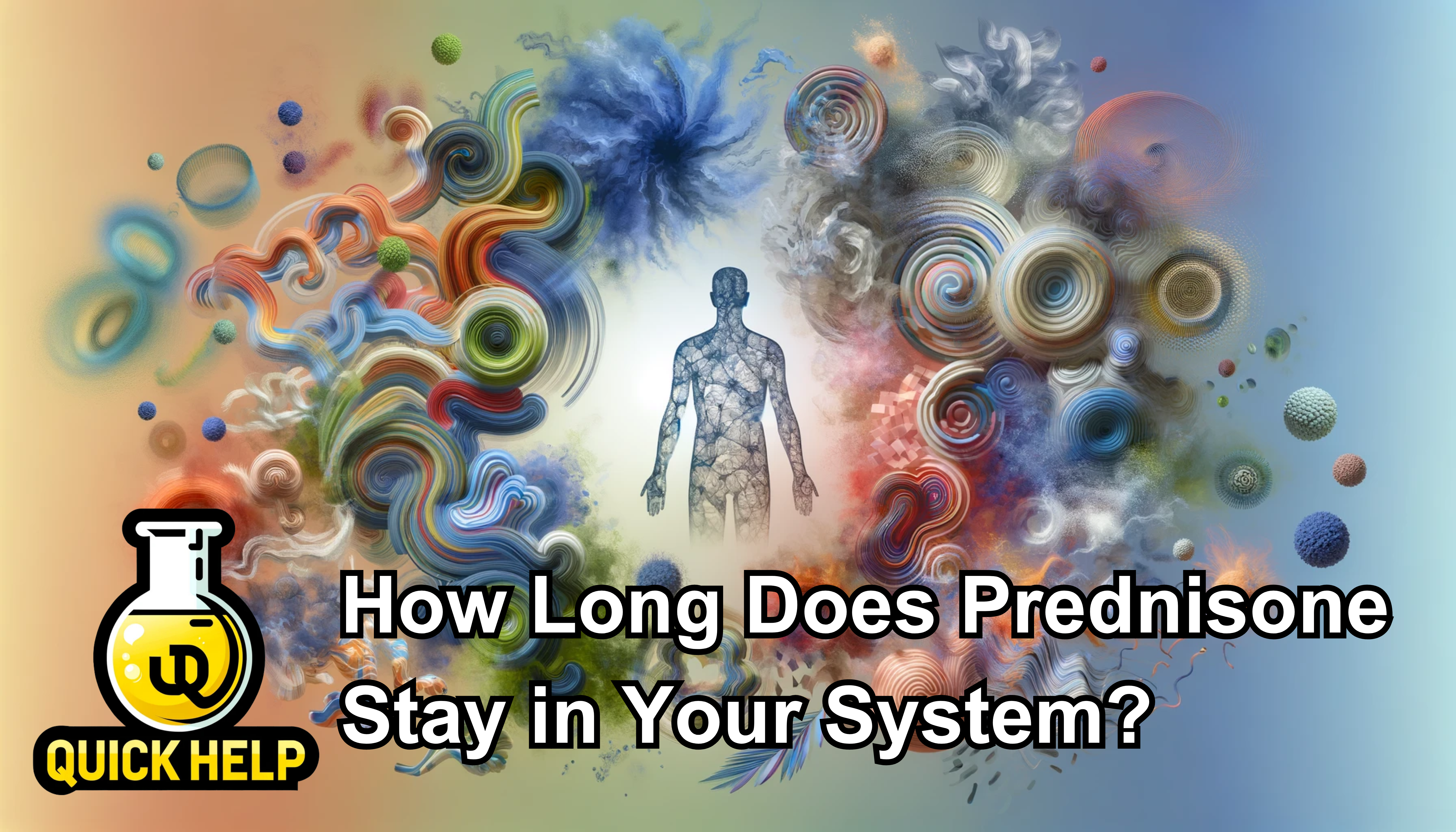Understanding the Basics of PCP
PCP, or phencyclidine, is a powerful hallucinogenic substance that has been on the drug threat assessment summary for many years. Understanding the basics of PCP is crucial in recognizing its effects and dangers. One key question often asked by users is, “How long does PCP stay in your system?” The answer varies depending on the method of detection. In terms of urine tests, PCP can be detectable for up to a week after use. In contrast, saliva tests have a shorter detection window of around 24-48 hours. Hair tests, on the other hand, can detect PCP use for up to 90 days. It is important to note that these figures are averages and can vary depending on several variables, including body mass, metabolism, hydration levels, and frequency and dose of PCP use. Understanding the complexity of PCP’s detection window can help professionals in substance misuse treatment programs, as well as support groups, in navigating the journey to recovery for individuals struggling with PCP addiction. For more information and assistance, individuals can call landmark recovery specialists to discuss treatment options and support.
A Glimpse into the History of PCP
PCP, also known as phencyclidine, has a lengthy history that dates back to the 1950s. Initially developed as an anesthetic by pharmaceutical company Parke Davis, PCP’s ability to induce detachment from one’s surroundings made it a popular choice among doctors. However, the substance’s unpredictable side effects and the emergence of more reliable anesthetics led to its discontinuation for medical use in the 1960s. Despite this, PCP found its place in the streets and the hippie culture of the 1970s, earning the infamous nickname “angel dust.” Its hallucinogenic and dissociative properties attracted users, resulting in a surge in PCP abuse. Moreover, numerous myths and deceptions surrounding PCP use further contributed to its popularity. As a result, PCP became a subject of concern for both the medical community and law enforcement agencies, prompting the development of drug testing methods such as urine, blood, and hair tests to detect PCP use and assess its consequences.
PCP is a potent drug that affects the central nervous system, leading to a range of physical and psychological symptoms. When consumed, PCP quickly reaches its peak levels in the bloodstream, resulting in a euphoric state, increased strength, and adrenaline highs. However, PCP’s effects are short-lived, with a half-life of around 30 hours in the body. The majority of PCP is excreted through urine, making urine tests the most common method for detecting PCP use. These tests can detect PCP use for up to a week after consumption, depending on the dosage and individual factors. Blood tests and hair tests can provide a longer detection window, with PCP remaining detectable for several months. It is important to note that the duration of PCP’s presence in the body can vary depending on factors such as the frequency and amount of use, overall health, and individual metabolism. In summary, PCP can stay in a person’s system for a considerable amount of time, and various testing methods offer insights into its use and its impact on an individual’s health and well-being.
Recognizing Signs & Symptoms of PCP Addiction
Recognizing the signs and symptoms of PCP addiction can be crucial in identifying and addressing the problem early on. One of the main questions individuals often ask is, “How long does PCP stay in your system?” In terms of urine testing, PCP can be detected for up to 7 days after the last use. It’s important to note that addiction to PCP can have a profound impact on an individual’s mental health. Symptoms such as depression, paranoia, and confusion may arise, leading to irrational thoughts and behaviors. Physical manifestations of PCP addiction can include tremors, rigidity, and difficulties with breathing. In severe cases, individuals may even experience overdose, which can result in life-threatening circumstances. It is crucial to be aware of these signs and symptoms in order to seek appropriate treatment and support.
Recognizing the signs and symptoms of PCP addiction is essential for intervention and promoting recovery. While the effects of PCP on the body and mind are well-documented, there are still many misconceptions surrounding the drug. Some individuals may mistakenly believe that PCP can “replace” other substances like weed or cigarettes, leading to a dangerous mix of drug use. Others may use PCP alongside other substances, such as cocaine or amphetamines, further exacerbating the risks. PCP, which can be found in both powder and fluid forms, can cause hallucinations, numbness, and amnesia. Additionally, panic, confusion, and high blood pressure are common symptoms. To ensure accurate diagnosis and appropriate treatment, it is essential to consult with healthcare professionals, substance abuse treatment centers, or mental health services. Understanding the signs and symptoms of PCP addiction can help individuals and their loved ones take the necessary steps towards a healthier and drug-free life.
How PCP Interacts with the Human Body
Phencyclidine (PCP), also known as “angel dust,” is a drug that interacts with the human body in intricate ways. Understanding how long PCP stays in your system, particularly in your urine, is crucial for several reasons. According to a journal review by Marla et al. from Princeton University, urine testing is one of the most common methods to detect PCP use. The drug can be detected in urine for up to 7 days after ingestion, although the exact timeframe may vary depending on factors such as dosage and individual metabolism. It is important for healthcare providers, physicians, and addiction professionals to be aware of the risks and nature of PCP use, as well as the associated side effects and withdrawal symptoms. In situations where drug abuse is suspected, urine testing can provide valuable information and help guide treatment decisions.
The Metabolism and Excretion of Phencyclidine
PCP, also known as phencyclidine or angel dust, is a potent substance that has a complex metabolism and excretion process within the body. Understanding how long PCP stays in your system, particularly in terms of urine tests, can help in determining the presence of this drug. The mechanism by which PCP is metabolized and excreted varies from person to person, making it difficult to predict exactly how long it will take for the drug to be completely eliminated from the body. Factors such as the dose of PCP taken, hydration levels, and individual metabolism can all play a role in determining the duration of PCP’s presence in the body. Thus, it is important to seek help from professionals at drug treatment centers who have the expertise to guide you through the detox and recovery process. These facilities can provide the necessary care and support to address any PCP addiction and ensure a safe and effective treatment plan.
Impact of Dosage and Hydration on PCP Abstraction
Dosage and hydration levels can have a significant impact on the abstraction of PCP in the body. The amount of PCP consumed and the individual’s hydration status can affect how long the drug stays in the system, particularly in urine tests. Higher dosages of PCP can result in a longer detection window, while adequate hydration can help flush the drug out of the system more quickly. Additionally, the presence of PCP in urine samples can indicate a potential addiction or misuse of the drug, highlighting the need for further assessment and treatment.
The interaction between dosage and hydration levels is crucial to consider when it comes to PCP use. Individuals who consistently use high doses of PCP or engage in chronic use may experience longer detection times in urine tests. On the other hand, those who maintain proper hydration and consume lower doses may see a shorter detection window. It is important to note that the effects of PCP can vary from person to person, and factors such as weight, metabolism, and overall health can also play a role in how long the drug stays in the body.
The Lifespan of PCP in Your System
PCP, also known as phencyclidine or angel dust, can have a long lifespan in your system. One common question among individuals with a PCP addiction problem is, “How long does PCP stay in your system?” Specifically, when it comes to urine testing, PCP can typically be detected for up to 7 to 14 days after use, depending on the dose and frequency of use. However, it’s important to note that the length of time PCP stays in your system can vary based on several variables, including the functioning of your organs, the amount and frequency of PCP use, and individual factors. It’s crucial for individuals seeking treatment and recovery from PCP addiction to consult healthcare professionals, recovery specialists, and substance abuse treatment programs, which can provide guidance, support, and the necessary resources to navigate the challenges of detoxification, therapy, and building a new life free from PCP addiction.
Factors Determining How Long PCP Stays within the Body
Factors determining how long PCP stays within the body can vary depending on several factors. One key factor is the dosage and frequency of PCP use. Higher doses and more frequent use can result in PCP staying in the body for a longer period of time. Additionally, the method of PCP ingestion can also affect how long it stays in the system. For example, when PCP is consumed in powder form, it is typically absorbed more quickly by the body compared to other forms such as tablets or capsules. Other factors include individual metabolism and hydration levels. These factors can influence the speed at which PCP is metabolized and excreted, ultimately affecting how long it remains in the body.
The duration of PCP’s existence within the body poses unique challenges and considerations for users and those working in drug treatment programs. Understanding how long does PCP stay in your system (urine) is crucial for developing an effective drug treatment plan and assessing the reliability of drug tests. For instance, urine tests are commonly used to detect PCP in individuals, but the dependency on this type of test may present some issues. The reliability of urine tests relies on a person’s metabolism, the type of substance used, and the frequency of use, among other factors. Therefore, it is essential for treatment centers and individuals in recovery to recognize the potential limitations of urine tests and explore alternative testing methods, such as saliva or blood tests, to ensure accurate detection of PCP use.
What to Expect During PCP Withdrawal
During PCP withdrawal, individuals can expect a range of physical and psychological symptoms. The duration of withdrawal can vary depending on factors such as how long PCP stays in the system. In terms of urinalysis, PCP can be detected for up to seven days after use. However, it’s important to note that other substances like methamphetamine, hydromorphone, Adderall, cocaine, and fentanyl can also affect the length of detection. Patience is key during this time, as withdrawal symptoms can be intense. Individuals may experience cravings, irritability, anxiety, low mood, fever, and even seizures in severe cases. Seeking help from a healthcare professional or a specialized treatment center can provide the necessary support during this challenging phase of recovery.
Throughout the PCP withdrawal process, individuals may find themselves questioning their decision to quit and may need reassurance and guidance. It’s crucial to remember that PCP is a dangerous drug and quitting is the right thing to do. It’s important to understand that the danger of PCP lies not only in its psychoactive effects but also in its potential to cause severe damage to brain tissue. Overdose is a real concern, as a medium dose of PCP can lead to coma, stroke, and even death. Additionally, PCP use is often associated with increased risk-taking behaviors, such as engaging in crimes or violence. Seeking treatment admission and fully disclosing all drug use details to healthcare professionals is the best way to receive accurate information, safe detoxification, and a personalized treatment plan. Treatment centers and facilities can provide the necessary care, support, and individualized attention needed to navigate the journey towards recovery.
Drug Tests for PCP Detection
Drug tests are an essential tool in detecting PCP in the body. One common method is through urine tests, which can determine how long PCP stays in your system. These tests are crucial in identifying substance drug addiction and helping individuals on their journey to healing. Professionals use urine tests to assess the presence of PCP and other drugs, monitor withdrawal symptoms, and measure the effectiveness of treatment. By detecting the amount of PCP in the urine, healthcare providers can tailor treatment plans to address cravings and withdrawal symptoms. Under the supervision of trained staff, individuals learn coping skills to manage urges and develop healthy behaviors. The staff at drug treatment admissions are available around the clock to provide support and guidance, ensuring individuals receive the care they need in a safe and structured manner.
The Importance of Urine Tests in Drug Assessment
Urine tests play a crucial role in drug assessment, especially when it comes to determining how long PCP stays in your system. PCP, also known as phencyclidine, is a powerful drug that affects the body for a significant period of time. Through urine tests, healthcare professionals can detect the presence of PCP in your system, as well as monitor its levels over time. Urine tests provide valuable information about the duration of PCP in the body, allowing for the development of personalized treatment plans in rehab facilities. Whether it’s for manufacturing, coma, catatonia, stimulation, or concentration, urine tests are an indispensable tool in the diagnosis and management of PCP addiction.
Furthermore, urine tests are beneficial in determining if PCP misuse is a factor in the development of substance use disorders. These tests can help answer important questions regarding the sources of PCP in the body, the elimination routes, and the impact of factors like age, genetics, and gender on PCP metabolism. By accurately measuring the presence of PCP in urine, healthcare professionals can tailor addiction treatment plans to suit individual needs. This may include therapy sessions such as cognitive-behavioral therapy, which has shown promising results in addressing anxiety, motivation, and the discontinuation process. Additionally, urine tests can assist in monitoring the effectiveness of sleep medications, such as Ambien and antidepressants, in managing withdrawal symptoms and aiding in the recovery process. Overall, urine tests provide valuable information that can guide addiction centers in the management and treatment of PCP addiction.
Exploring Hair Follicle and Blood Tests for PCP
Hair follicle and blood tests are two methods commonly used to detect PCP in the body. Hair tests can provide information on drug use over a longer period of time compared to other tests, such as urine or saliva tests. Research studies have shown that PCP can be detected in hair samples for up to 90 days after last use. This makes hair follicle tests particularly useful in determining long-term drug use and identifying chronic PCP addiction. On the other hand, blood tests are more effective in detecting recent drug use, as they can identify the presence of PCP within hours after use. These tests are often used in emergency medicine situations or when immediate drug screening is necessary. Understanding the detection windows and limitations of hair follicle and blood tests can play a crucial role in providing accurate information for PCP addiction care and treatment.
When it comes to drug testing for PCP, there are several factors to consider. The amount and frequency of PCP use, as well as the dose and method of administration, can all affect how long the drug stays in a person’s system. For example, a high dose of PCP administered intravenously may result in a longer detection window compared to a lower dose taken orally. Other factors, such as an individual’s metabolism, body fat composition, and hydration levels, can also influence how long PCP stays in the body. It’s important to note that different drug tests have different detection windows, with urine tests generally detecting PCP for up to 3-7 days after use. Understanding these factors and the intricacies of drug testing can help healthcare professionals and addiction treatment centers in developing effective withdrawal management protocols and determining the most appropriate course of treatment for individuals struggling with PCP addiction.
Confronting PCP Addiction: The Journey to Recovery
Confronting PCP addiction is a challenging journey, but one that is possible with the right support and treatment. Understanding how long PCP stays in your system is crucial in managing addiction. PCP, also known as angel dust, is a powerful hallucinogenic substance that can have severe effects on the body. It is typically consumed in powder or tablet form, and some users may also inject it. PCP is metabolized and excreted primarily through urine, which makes urine tests an important tool in drug assessment. Treatment centers play a vital role in managing PCP addiction, providing individuals with the necessary support and therapies to overcome their dependence on this dangerous substance.
Navigating Addiction Treatment and Process Specialty Therapies
Navigating addiction treatment and exploring specialty therapies can be a complex and challenging journey for individuals struggling with PCP addiction. One of the key factors to consider is how long PCP stays in your system, particularly for urine drug examinations. Understanding the duration of PCP in the body is crucial for treatment centers and healthcare institutions to develop effective detoxification programs. Factors such as age, liver function, and kidney health can affect how long PCP remains in the urine. Therefore, experts in addiction treatment must consider these variables when designing personalized treatment plans to ensure the best possible outcomes for individuals seeking recovery from PCP addiction.
Specialty therapies in addiction treatment play a vital role in addressing the unique needs of PCP users. Withdrawal symptoms associated with PCP can be intense, including hallucinations, loss of sensory perception, and muscle spasms. Therefore, rehabilitation centers and treatment centers incorporate therapies that focus on managing and alleviating these symptoms. Techniques such as cognitive-behavioral therapy (CBT), mindfulness meditation, and group counseling have shown promising results in helping individuals cope with the challenges of PCP withdrawal. Additionally, the use of pharmacokinetics and pharmacodynamics can assist healthcare professionals in understanding how PCP interacts with the body and developing tailored treatment approaches to address the specific effects of the drug. By providing a comprehensive range of therapies and support, addiction treatment centers can empower individuals to regain control over their lives and embark on a journey towards recovery from PCP addiction.
The Role of Treatment Centers in Managing Addiction
Treatment centers play a crucial role in managing addiction, especially when it comes to PCP. These centers provide the necessary expertise and guidance to help individuals overcome the challenges of addiction. They understand the parameters of how long PCP stays in your system, particularly in urine. With this knowledge, treatment centers are better equipped to tailor their programs and therapies to meet the specific needs of each individual. They also offer a safe and supportive environment where individuals can focus on their recovery without distractions from the outside world. Additionally, treatment centers provide resources and support for families, offering family counseling and substitute treatments to help them understand and cope with the difficulties that addiction brings.
In the journey to recovery from PCP addiction, treatment centers offer a range of options to address the physical, mental, and emotional aspects of addiction. These options include inpatient treatment, outpatient programs, and specialized therapies. Addiction experts at these centers understand the intricacies of PCP addiction, from the initial buzz and intoxication to the elation and altered perception it brings. They employ various techniques to help individuals manage cravings and withdrawal symptoms, whether through therapy, medication, or a combination of both. Treatment centers also provide a supportive environment for individuals to learn and develop new coping skills to replace old patterns of addiction. By guiding individuals through the process of morphine withdrawal, treatment centers can help them reclaim their lives and regain control from the devastating grip of PCP addiction.
Treatment Options and Support for PCP Addiction
Treatment options and support for PCP addiction are essential in helping individuals on their journey to recovery. One of the crucial aspects to consider is how long PCP stays in your system, specifically through urine testing. This information is vital as it helps to determine the extent of one’s dependency and guides professionals in developing an appropriate treatment plan. Rehabilitation facilities provide a structured environment for individuals to focus on their recovery. These facilities offer updates on the latest techniques in addiction management and provide specialized therapies such as psychotherapy, group therapy, acupressure, and hypnotherapy. Additionally, addiction management tools and support systems like sober living homes offer numerous benefits during the recovery process. Staying connected through a recovery newsletter can provide information on the latest research and techniques, while also serving as a reminder of the importance of sobriety. It’s crucial for individuals struggling with PCP addiction to seek help from professionals who can provide the necessary monitoring, assistance, and evaluation. Treatment centers have trained staff who are experienced in dealing with the inclinations and challenges associated with PCP addiction. With their tenacity and resistance to risk, they can guide individuals through the discomfort and pain of withdrawal symptoms. Moreover, these professionals can help individuals address underlying issues that may have contributed to the development of the addiction. By offering guidance, therapy, and support, they can aid in the recovery process and assist individuals in maintaining long-term sobriety.
Coping with Withdrawal Symptoms and Detox Treatment
Coping with withdrawal symptoms and detox treatment is a crucial step in overcoming PCP addiction. When someone stops using PCP, they may experience a range of physical and psychological symptoms. These can include feelings of depression, anxiety, insomnia, and intense cravings for the drug. The length and intensity of these symptoms can vary depending on factors such as the duration and dosage of PCP use, individual metabolism, and overall health.
Detoxification is the first stage of addiction treatment for PCP, and it aims to remove the drug from the body while providing necessary medical and emotional support. Detox can help manage withdrawal symptoms and reduce the risk of complications. In some cases, medications may be used to alleviate specific symptoms, such as antidepressants to address depression or anti-anxiety drugs for anxiety. Detox should always be conducted under medical supervision to ensure the safety and well-being of the individual. Additionally, psychotherapy services and ongoing support are crucial for addressing the underlying causes of addiction and developing healthy coping mechanisms to prevent relapse.
Decoding Insurance Providers’ Role in Addiction Treatment
Decoding Insurance Providers’ Role in Addiction Treatment
Insurance coverage can play a crucial role in accessing addiction treatment for PCP addiction. Many individuals wonder how long PCP stays in their system, particularly when it comes to urine tests. These drug tests are a commonly used method to determine the presence of PCP and its metabolites in the body. Insurance providers are well aware of the importance of these testing methods and often cover the costs as part of their addiction treatment programs. By understanding how long PCP stays in the urine, insurance providers can assess the duration and intensity of treatment needed for an individual struggling with PCP addiction.
Hair testing is another effective method for detecting PCP use. Insurance providers recognize the value of this testing method in providing a comprehensive overview of an individual’s drug history. Hair tests have the unique property of being able to detect PCP use over a longer period compared to urine tests, as the metabolites of PCP can be present in hair for several months. Insurance providers may cover the costs of hair testing as part of their addiction treatment coverage, allowing individuals and their loved ones to gain a deeper understanding of the extent of PCP use and tailor treatment plans accordingly.
Conclusion
In conclusion, understanding the basics of PCP is vital for recognizing signs of addiction and knowing how long the drug stays in the body. Healthcare professionals, law enforcement agencies, and individuals should be aware of the risks and consequences associated with PCP use. Drug tests, such as urine and blood tests, play an essential role in detecting PCP in the body and determining the length of time it remains present. Factors such as dosage, hydration levels, and overall health can impact the excretion process and detection window. Recovery from PCP addiction requires comprehensive treatment strategies and support systems. By increasing awareness and implementing prevention efforts, we can strive towards better outcomes and improve the well-being of individuals affected by PCP abuse.
FAQ
How long does PCP stay in your system?
The detection time for PCP in urine can vary, but generally, it can be detected for up to 7 days after use.
What factors can affect how long PCP stays in your urine?
Several factors can influence the duration of PCP detection in urine, including the dosage taken, frequency of use, individual metabolism, and hydration levels.
Can PCP be detected in a drug test after a week?
It is unlikely for PCP to be detected in a urine drug test after 7 days of use. However, individual factors may slightly vary the detection window.
How accurate are urine tests in detecting PCP?
Urine tests are highly accurate in detecting PCP, providing reliable results for drug assessment. These tests can detect even small traces of PCP in the system.
Can other types of drug tests detect PCP for a longer period?
Yes, blood and hair follicle tests have a longer detection window compared to urine tests and can detect PCP use for a longer duration.
How long can PCP be detected in blood tests?
PCP can be detectable in blood tests for up to 48 hours after use, depending on various factors such as metabolism and dosage.
How long does PCP stay in hair follicles?
PCP can be detected in hair follicle tests for an extended period, usually up to 90 days after use.
What are the typical withdrawal symptoms during PCP detox?
Common PCP withdrawal symptoms may include anxiety, depression, drug cravings, irritability, and sleep disturbances.
Is it necessary to seek professional addiction treatment for PCP addiction?
Professional addiction treatment is highly recommended for individuals struggling with PCP addiction. It offers comprehensive support and therapies to overcome addiction successfully.
Can insurance providers cover the cost of addiction treatment for PCP addiction?
Many insurance providers offer coverage for addiction treatment, including PCP addiction. It is advisable to check with your specific insurance provider to understand the extent of coverage.
What treatment options are available for PCP addiction?
Treatment options for PCP addiction may include therapy, counseling, support groups, detoxification programs, and inpatient or outpatient rehab programs.
How long does the recovery process take for PCP addiction?
The recovery process for PCP addiction can vary depending on individual circumstances. It may range from several weeks to months or even longer, depending on the severity of addiction and response to treatment.














